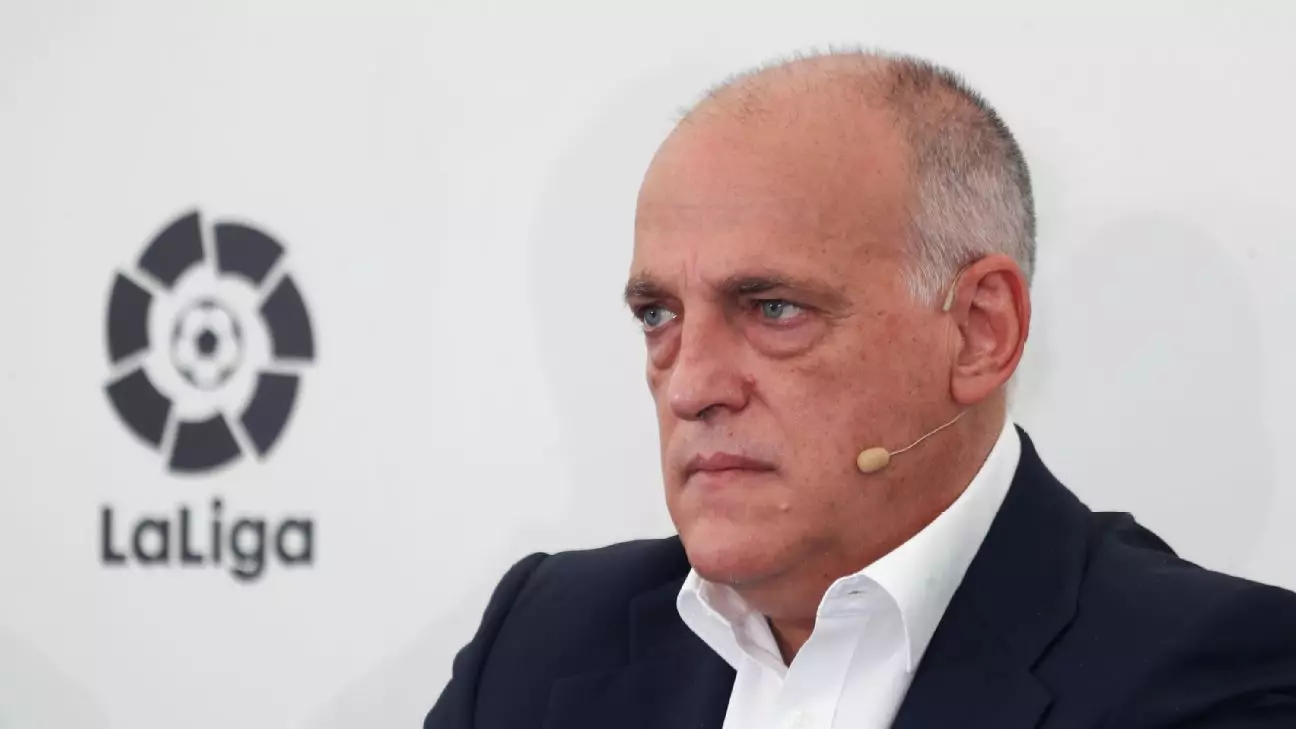In a significant move against racism in football, LaLiga president Javier Tebas has expressed firm intentions to impose prison sentences on fans who engage in racially abusive behavior during matches. This declaration follows a recent ruling by a Spanish court that sentenced a Mallorca supporter to a 12-month suspended sentence for hurling racist insults at Real Madrid star Vinícius Júnior and Villarreal player Samuel Chukwueze in February 2023. Tebas emphasized the importance of this ruling, stating that it is a precursor to more significant legal actions that could stem from ongoing cases. His commitment to relentless pursuit of racial justice is showcased through statements promising to hold accountable those who perpetuate this toxic culture within the football community.
Racism has long been an endemic issue in Spanish football, as evidenced by multiple incidents involving players like Vinícius Júnior. The harassment faced by these athletes raises crucial questions about the effectiveness of current measures in place to combat racism. Recently, Getafe’s Christantus Uche, a 21-year-old who is still acclimatizing to the challenges of LaLiga, voiced his frustrations over racist abuse directed at him by fans. His plight highlights the urgent need for institutional change within football clubs and leagues, as offending supporters often face minimal repercussions for their actions.
A Call to Action for Players and Clubs
Tebas’s remarks encourage victims of racism, like Uche, to voice their experiences and report these incidents to their respective clubs or LaLiga itself. He revealed that monitoring systems, including special cameras, are being deployed around match venues to identify and expel those participating in discriminatory behavior. The proactive engagement of the public in denouncing racism during matches has been commended by Tebas, who believes such collective action has altered the landscape of football fandom. The Vinícius case serves as a distinctive turning point, as spectators are increasingly willing to confront the offenders among them.
Tebas’s advocacy for stringent punishments extends beyond immediate stadium incidents, reflecting a broader cultural acknowledgment of racism in sports. As he lauded Vinícius’s achievements, which include winning LaLiga and the Champions League, he simultaneously observed that recognition of talent shouldn’t overshadow the imperative to address racial injustices. With the upcoming Ballon d’Or ceremony, he projected Vinícius as a strong contender for the prestigious award, signaling that despite the challenges he faces, LaLiga continues to foster exceptional talent.
The fight against racism in football is far from over, but the actions and sentiments expressed by Javier Tebas mark a vital step towards accountability and cultural change. By demanding justice for victims and advocating for systemic reforms, LaLiga is gradually pivoting towards a more inclusive environment. Fatigue with passive oversight needs to end; it is only through vigilance and community engagement that football can aspire to be truly representative and free from the scourge of racism.
